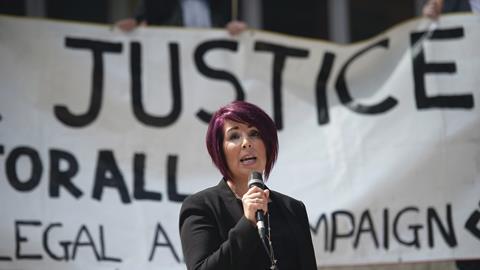The profession has vowed to hold the government to account on its plans for courts to stay open as late as 8.30pm, claiming that the additional burden of working ‘exceptionally late’ hours must be recognised.
HM Courts & Tribunals Service has announced a flexible working pilot at six courts. It said this will help it to understand how flexible hours affect court users. HMCTS will then evaluate whether this could be a sustainable way of working.
The pilots are expected to begin in May, in six courts over six months. Crown courts will be open until 6pm, civil courts until 7pm and magistrates’ courts until 8.30pm.
Zoe Gascoyne (pictured), chair of the Criminal Law Solicitors’ Association, said the news had been met with anger. According to Gascoyne, defence practitioners had been ‘noticeably absent’ from a ‘national steering group’ that HMCTS said had approved the pilot.
Gascoyne added that the plans discriminate against those with childcare concerns and that other factors, including how criminal firms make arrangements for employees to cover cases outside normal working hours, had not been considered.
‘Both sides of the profession are facing further cuts and it is inconceivable that defence practitioners will make themselves available without any consideration as to how they will be remunerated. If legal representation isn’t made available during the extended hours then this restricts access to justice,’ she said.
‘It is about time that government agencies recognised the fundamental importance of defence practitioners, without whom the system would grind to an expensive halt.’
The Law Society warned that any proposal would require robust evaluation to assess the impact, while the Bar Council claimed that extended hours would be ‘almost impossible’ for parents with childcare responsibilities.
Angela Hogan, chair of the Association of Women Solicitors (AWS), said the association would need ‘to look at these pilots to ensure our members are in a position to manage the additional burden of working such exceptionally late hours and at short notice’.
She added: ‘The AWS will look at the current proposals carefully to ensure that both the needs of defendants to have adequate representation and the rights of our members to reasonable working arrangements are met.’
The Ministry of Justice previously introduced flexible court sittings in the wake of the 2011 riots. Under that scheme, 42 magistrates’ courts had extended weekday as well as weekend sittings. Around 6,000 cases were heard during the pilot.
The six courts taking part in the new pilot are: Newcastle Crown Court; Blackfriars Crown Court; Sheffield Magistrates’ Court; Highbury Corner Magistrates’ Court; Brentford County Court; and Manchester Civil Justice Centre.
The Ministry of Justice said that flexible operating hours is only one aspect of a transformed justice system which includes increased use of virtual hearings to allow legal professionals more flexibility on where they work. A spokesperson stressed that the later working hours were being introduced as an experiment. ‘These pilots will help us understand how flexible hours affect all court users and will be fully evaluated before any decision is taken on rollout.’




























9 Readers' comments